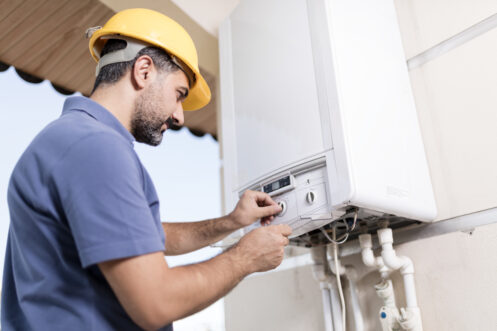If you have a boiler at home, you may wonder how long it will function and when you should replace it. Boilers supply hot water and heat and require routine maintenance and care to ensure peak performance and efficiency. The typical lifespan of a boiler is 15 years, but this might vary based on several factors. Understanding these influences may enable you to take better care of your boiler.
Factors Influencing the Lifespan of a Boiler
Type of Boiler
There are several types of boilers, including gas, oil, biomass, and electric. Each type has benefits and drawbacks, and some can last longer than others. Gas boilers, for example, are more reliable and efficient compared to oil boilers, but they need to be serviced and inspected more frequently. Electric boilers are less expensive to install but may cost more than gas or oil boilers. Biomass boilers are environmentally friendly and sustainable but require extra space for fuel storage.
Quality of the Boiler
The boiler’s quality is determined by its brand, model, and specifications. Some boilers are more reliable and long-lasting than others and may have enhanced technology and safety features. For example, some boilers contain modulating burners that adjust heat output based on demand, reducing energy use and extending the boiler’s lifespan. Some boilers also feature self-cleaning systems that prevent dust, ash, sediment, and dirt from accumulating, which can lead to damage.
Boiler Installation
The installation process of the boiler is critical to its longevity and performance. A poorly installed boiler may lead to leaks, inefficiencies, and malfunctions. Therefore, you must ask an experienced company like [company_name] to install your boiler properly and safely.
Boiler Maintenance
The boiler must be maintained to remain in good working condition and extend its life. A well-maintained boiler operates with greater efficiency and safety, reducing the possibility of costly repairs or replacements. Your boiler should ideally be serviced once a year by experts from [company_name], who will inspect the boiler’s components, clean it, and fix any issues. You should also follow the manufacturer’s instructions for optimal operation and care.
Boiler Usage
The number of times the boiler is serviced and repaired and how long it lasts can be influenced by its usage. Using your boiler often and for an extended period will wear out much faster and necessitate more maintenance. If you use your boiler sparingly and only for a short time, it will last longer and require less maintenance. Therefore, it is best to use your boiler sparingly and only when necessary and to switch it off or reduce the temperature while you are away or sleeping.
Water Quality in the Boiler
The boiler’s water quality might affect its lifespan and efficiency. Hard water, which has a high concentration of minerals and contaminants, can cause corrosion and scaling in the boiler, reducing heat transfer and damaging the components. Soft water, which contains fewer minerals and contaminants, helps minimize these effects, although it may cause corrosion, jeopardizing the boiler’s integrity and safety. Therefore, regularly checking your boiler’s water quality and using water treatment equipment or a water softener as needed is critical.
Location of the Boiler
The boiler’s location can influence its exposure to environmental elements such as temperature, dust, and humidity, affecting its performance and longevity. For instance, if your boiler is placed in a cold and damp area, such as a garage or basement, it is more likely to freeze and condense, resulting in cracks and leaks. Suppose your boiler is in a hot and dusty environment, such as a closet or an attic. In that case, it can be subject to overheating and clogging, reducing its efficiency and longevity. It is advisable to position your boiler in a dry and well-ventilated area where it can function safely and comfortably.
Tips to Prolong the Life of a Boiler
Upgrade Your Boiler
If your boiler is over 10 years old, it may be time to upgrade to a newer, more efficient model. Newer boilers are generally more energy efficient, consuming less fuel and emitting less carbon dioxide. They also include additional features and functionalities that might enhance your level of convenience and comfort. Besides improving the system’s longevity, having a professional replace your boiler with a newer type can also help boost the value of your property and make it more appealing to prospective buyers.
Insulate Your Home
Good insulation at home can assist in preventing heat loss and keep your home warmer and cozier. This can also minimize the stress and workload of your boiler, allowing it to last longer and cost less to operate. A specialist can insulate your home by adding insulation to the walls, roof, windows, and doors and sealing any cracks and gaps that allow cold air to enter and warm air to leave.
Use a Smart Thermostat
Using a smart thermostat allows you to conveniently adjust the timing and temperature of your heating system, improving the boiler’s performance and efficiency. With remote control features, you can set the thermostat to a comfortable temperature even when you are away and modify it based on your schedule and preferences. The thermostat also learns your habits and routines and adjusts the heat automatically. This can save you energy and money while extending the boiler’s lifespan.
Flush the Boiler
Flushing a boiler may help remove accumulated silt and debris, affecting efficiency and heat transfer. Flushing your boiler can also help prevent the buildup of sludge, which can cause boiler damage, strange noises, and even leaks. Have your boiler cleaned at least once a year or more frequently if you see any indicators of bad water quality, such as cloudy or discolored water or low pressure.
Bleed the Radiators
Bleeding boiler radiators can assist in releasing any air that may have been trapped in the boiler, affecting heat circulation and distribution throughout your home. Bleeding the radiators also helps to avoid air pocket formations, which may lead to inefficiency and noise in the boiler. You should have a professional bleed the radiators at least once a year or more frequently if you discover evidence of air in the system, such as cold spots or inconsistent heating. Touch the radiator’s surface to find out if it needs bleeding. In many circumstances, you will notice a cold spot near the top surface of the radiator, or your radiator may not heat up at all.
Use a Magnetic Filter
A magnetic filter can help safeguard your boiler from the damaging effects of iron oxide, a byproduct of the heating system’s corrosion process. Iron oxide can create blockages in boilers, reducing their efficiency and longevity. A magnetic filter captures and removes iron oxide particles from water, improving its quality and the boiler’s performance. Ask [company_name] to install a magnetic filter for your boiler and remember to clean it regularly to maintain its efficacy.
Meeting Your Heating Needs
[company_name] is your best choice for dependable and expert heating solutions in Twin Falls County, Jerome, Magic Valley, and the surrounding areas. We offer you hassle-free service, including upfront pricing and simple scheduling. We provide various heating services, such as boiler installation, repair, maintenance, and replacement. We also offer other services, including carbon monoxide detection, indoor and outdoor lighting, bathroom plumbing, gas leak detection, drain cleaning, air cleaning and filtration, and air conditioning. Our team of experienced professionals is fully equipped to solve any heating boiler problem or emergency.
Whether you need a new boiler, boiler repair, or a boiler tune-up, we can help. Contact [company_name] at our Magic Valley or Treasure Valley office today to schedule your service.


